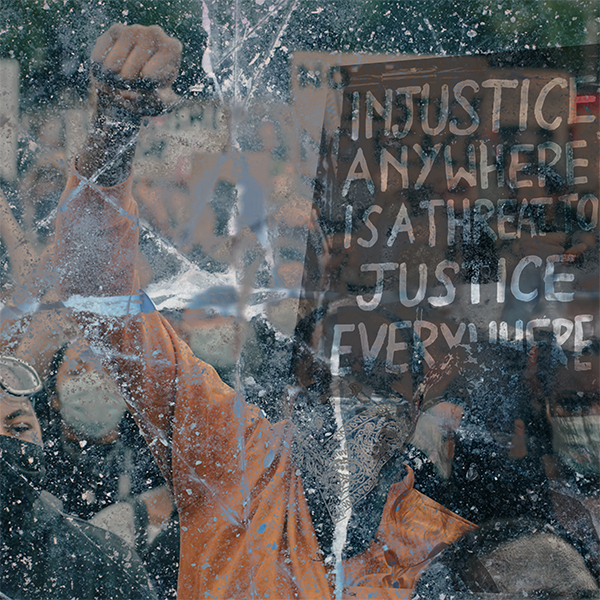Calling for Culturally-Competent Leaders
Editor’s Note: It’s clear in these trying times that leaders both inside and outside the church still need assistance with growing in their cultural competency. Michelle Reyes would like to offer some words of advice, as someone who has had to wrestle with cross-cultural communication her whole life, whether as an Indian American woman in academia and in ministry as a church planter, or as a person of color growing up in majority-white spaces. Her new book Becoming All Things: How Small Changes Lead To Lasting Connections Across Cultures released this week and offers guidance on understanding cultural differences and how to mend them. Reyes provided these initial thoughts about the topic and why it’s especially important for church leaders to grow in their competency in this area.
Missio Alliance (MA): Do those who are white have a cultural identity? And if so, why is it especially important for church leaders to understand this identity?
Michelle Reyes: Absolutely. Every person has a cultural identity, meaning we each have a set of ideals and stories based on our ethnic roots. If you lined up ten white people, they would each have a different ethnic heritage, family, traditions, and values. It’s important for all people to understand who they are, where they came from, and what stories are most meaningful to their lives. Those who are white, like any of us, need to see their cultures, lean into and develop them, and ultimately celebrate the uniqueness of their cultural identities. You will not be able to connect well with someone of another culture if you don’t first understand your own culture. You won’t be able to celebrate the cultural identity of another if you don’t know how to celebrate your own God-given cultural identity.
MA: How do our particular cultural lenses have an impact on how we read and understand Scripture? Can pastors and church leaders learn to “wear” different cultural lenses to understand Scripture better or more accurately?
Reyes: Every person reads every text, whether it’s Shakespeare, Harry Potter, a scientific textbook, or the Bible, from a cultural lens. The way each of us reads a text is shaped by our values, narratives, and experiences. You and I could both read the same story, and different details and moments would stick out to each of us. For example, we could both sit down and read Mark 1 and come away with different readings of Jesus’ in-breaking kingdom. These readings wouldn’t necessarily be right versus wrong. They would just be different. There’s no such thing as an acultural reading of Scripture. Making space for different cultural lenses doesn’t have to negate historic orthodoxy; rather, it can add to our understanding of Scripture. This is why it’s so important to sit under the teachings of African American, Asian American, Latino American, and Native American theologians. Men and women of different cultures help us see a fuller picture of God’s word. Pastors and individual Christians alike can learn to “wear” different cultural lenses by reading theological works from writers of different ethnicities from themselves and also from women.
MA: In certain segments of the church, critics contend that “identity politics” and talking about race and ethnicity only leads to division and disunity. What is your response to those arguments?
Reyes:
Too often I hear criticism of things that I say or that other people of color say as “identity politics.” What this criticism often reveals is a difference in lived experiences. What some people label politics is simply my embodied way of life in the world. You are far more likely to dismiss something as political when the issue does not impact you personally.
Merely acknowledging different ethnicities and cultures is not divisive. In fact, the Bible names ethnicity and culture quite clearly. From the cultural mandate in Genesis 1:28 in which we see God’s plan to fill the earth by promoting the spread of different people groups with different languages and ethnicities to Revelation 7:9, depicting a picture of believers as multiethnic and multicultural, united in worshipful submission to God, we can glean that cultural flourishing is paramount to God’s intentions for humanity and for our ability to be together in Christ, not only in the present age as the church but throughout eternity. The Bible affirms that God intended a multicultural body of Christ from the very beginning. His plan all along was for his chosen people to ultimately become a diverse body, and that our unique ethnic identities, languages, and expressions are part of how we reflect God’s image in the world.
The Bible affirms that God intended a multicultural body of Christ from the very beginning. His plan all along was for his chosen people to ultimately become a diverse body. Share on XMA: For those leaders who are white, what are ways in which they can actively affirm the cultural identities of people of color in their congregations or organizations? Why is it important for them to do so?
Reyes: The best way white leaders can affirm the cultural identities of people of color is to let people of color lead. We have to understand that whoever leads the church directly impacts not just who walks through the doors but also how issues of race will be addressed within the church. Pastors must assess the demographics of their local community and make sure voices in their churches are equally represented and decision-making power is shared. We need ethnicity- and race-conscious pastors, ministers, and leaders of color in the church. They bring new voices and new forms of leadership that are appropriate for their specific contexts and communities. They play a key role in helping a church lean into, develop, and celebrate the cultural identities of its congregants. These leaders will also know best how to direct strategy and decision-making as it pertains to their own communities.
MA: In this particular cultural moment when there is so much attention being given to issues of racial insensitivity and stereotyping, those who are white may feel afraid to try to engage in learning conversations with people of color for fear of saying the wrong thing or offending. What suggestions do you have for those who want to go beyond stereotypes and learn more about the experiences of people of color but who are nervous to do so?
Reyes: It’s okay to be nervous. This is where asking questions is helpful. It’s always better to ask open-ended questions and let the other person guide you in what terms to use or not use or how to respond to a racial tragedy. Try asking a neighbor, a coworker, or someone at church questions such as, “What is your ethnic story?”, “What are your cultural roots?”, and “What does justice look like for your community?”
Beyond that, I also people to understand that it is normal to make mistakes. This, too, is part of the learning process. We can keep educating ourselves. We can humbly step out to love our neighbors the best we can. When someone tells us that they were hurt by our words, or even calls us a racist, we can use these moments to reflect, have productive conversations, clarify our intent, apologize when necessary, adapt what we were doing, and keep pressing forward. That’s the only way we will continue to learn and grow.
MA: In these days when there are racialized incidents, violence, and hatred on display almost each and every day, what do you hope to see and hear from Christian leaders that can help provide healing and wholeness in the church regarding our response to these issues?
Reyes: What I long to see from Christian leaders is a willingness to try something new. This is in essence what I am encouraging in my book, Becoming All Things. In 1 Corinthians 9:19-23, the Apostle Paul writes, “I became all things to all people so that by all possible means I might save some” (v. 22). Like Paul, we too need to seek to become all things to all people. This means embracing change and being willing to think differently about who we are as cultural beings and how we’re supposed to live in community with people of other cultures. Being willing to adapt how we think, speak, and act is how we will begin moving toward healing and wholeness as a church.



